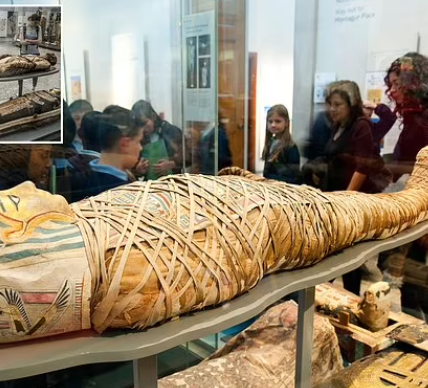If Donald Trump refuses to relent on his tariffs, we face a stock market cataclysm, global recession and a new inflationary spiral_nhy
Donald Trump avoided introducing his latest raft of tariffs today, on April 1, for fear he would be ridiculed for bringing in such radical measures on April Fool’s Day. Instead, the event he has labelled Liberation Day will fall tomorrow.
But that hasn’t stopped it being greeted with horror around the world. Share prices on Wall Street suffered catastrophic falls yesterday, with Britain’s FTSE100 down as well.
Trump’s shock and awe tariffs against friend and foe alike are sapping the wealth of investors across the globe, with the financial news service Bloomberg reporting that US shares have endured their worst quarter for 23 years.
The Wall Street Journal, a champion of free markets, has gone so far as to describe the US’s trade battles ‘as the dumbest in history’.
And the UK is uniquely vulnerable, as we face a double whammy this week. Next Sunday – the first day of the new fiscal year – Labour’s swingeing tax increases, notably the confidence-crushing rise in employers’ national insurance, will come into effect.
Before the current blitz of measures, the average US tariff on imports was 3 per cent. In Europe it is 5 per cent and in China 10 per cent. The President regards the disparity between these rates as profoundly unfair.
Trump’s predecessor, Joe Biden, may have gifted him a growing economy, with falling unemployment, but it came at a price. Biden’s big-spending measures, notably the post-Covid $1.9 trillion American Rescue Plan Act, the $3 trillion (misnamed) Inflation Reduction Act and the $53 billion Chips Act – designed to promote domestic semiconductor manufacture – sent American borrowing and debt soaring.
The fiscal deficit climbed to 6 per cent of the entire economy and the national debt to $37 trillion – 124 per cent of total output.

Donald Trump avoided introducing his latest raft of tariffs today, on April 1, for fear he would be ridiculed for bringing in such radical measures on April Fool’s Day, writes Daily Mail columnist Alex Brummer

Share prices on Wall Street suffered catastrophic falls yesterday, with Britain’s FTSE100 down as well (Pictured: Traders work on the floor at the New York Stock Exchange — March 31, 2025)

Alex Brummer (pictured) has been City Editor of the Daily Mail since 2000 and is the paper’s leading economic commentator
Savage cuts being engineered by Trump and Elon Musk are intended to move the dial on borrowing and debt in the opposite direction. They are also determined to return manufacturing to the US by imposing drastic tariffs.
This combination of measures, it is hoped, will create the headroom for Congress to renew Trump’s first-term tax cuts.
At first, Western leaders assumed that the White House’s radical plans for a trade war were a negotiating position, to be modified once its trading partners made concessions.
No such luck.
Now carmakers across the globe face a hugely damaging 25 per cent tariff on exports to the US and the very real possibility of a global recession, a downturn in growth and a rise in unemployment.
In the UK, the Office for Budget Responsibility warns Trump’s trade war could knock between 0.2 and 0.6 percentage points off Britain’s fragile growth rate, tipped to be just 1 per cent this year.
It could also lead to surging import prices, which will fuel inflation, postponing any hope of early cuts in UK interest rates.
Keir Starmer is aiming to negotiate an exception for the UK in exchange for a far broader trade deal.

New Range Rovers are displayed at the Jaguar, Land Rover dealership showroom in Southend — March 27, 2025
Even if he were to succeed, our carmakers, which import tariff-inflated parts and components from across the globe, would still be impacted.
Unpredictability hurts most, however. City broker Investec notes that ‘uncertainty looks almost certain to persist beyond April 2’.
In other words, hopes of a prolonged rally in stocks are probably misplaced.
Britain, if talks on a trade deal progress satisfactorily, could shelter itself from the worst of the tariff war.
Even if the UK were forced to accept a 25 per cent tariff on luxury car exports – such as Land Rovers and Bentleys – it might not be a total disaster, as distributors and consumers would absorb at least some of the hit.
But the real and present danger for Starmer, his Chancellor Rachel Reeves and Britain as a whole is an intransigent America. If Trump refuses to relent on his tariffs, we face a stock market cataclysm, global recession and a new inflationary spiral.



